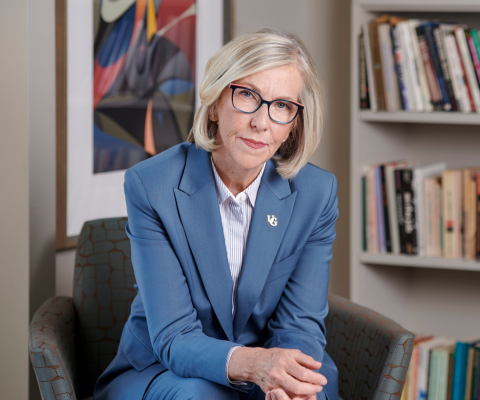A national sustainable agriculture plan needs to include universities


Canada’s agri-foods sector is rich in potential, and crucial to human and economic health. As it faces the monumental challenge of the climate emergency, there is only one way forward.
Sustainability—a robust supply of food and a smaller environmental footprint—is the future. Through research, innovation, training and engagement, our universities are uncovering the agri-food innovations that support productivity. We embed skills training and education in our research to supply the sector with the highly qualified people they need. We collaborate deeply.
But it’s time for government to work with us. With the possibilities that greater funding and collaboration offer, Canada can become the world’s leading supplier of safe, trusted, and sustainable food. Not only will this help ensure that we meet our sustainability goals, but it will boost our economy, and cement our position as a global leader in the green transition. It will also enable Canada to help the world battle food insecurity by increasing productivity and creating new alternative proteins.
We need a national plan for agri-food sustainability, growth, and productivity.
At the University of Guelph, the home of the Ontario Agricultural College (OAC), the Ontario Veterinary College, and the cutting-edge work of the donor-funded Arrell Food Institute (AFI), we approach this imperative from the diverse perspectives of a wide range of disciplines. We have researchers working on cybersecurity for “smart” and secure farms, applying high-tech data to efforts to build soil health locally and globally, developing low-emission dairy cattle breeds, and using lessons learned from growing food in space to expand agriculture to Canada’s northern and remote communities. We have 27 named professorships and research chairs who focus on food and agriculture research and innovation thanks in part to funding from industry partnerships.
We have the research and the expertise to lead the country in the direction we need to go. Dr. Evan Fraser, director of AFI, is representing Canada as a scientific advisor to the United Nations’ Committee on World Food Security and Nutrition. As one of 15 internationally-renowned agri-food academics, this role puts Dr. Fraser in a position to help influence global policy such as how we can build a more resilient food system in the face of social, economic and political turbulence.
We are also growing Canada’s expertise. Work is underway at AFI to train the next generation of agri-food and sustainability leaders to be true problem solvers who have a high level of scientific knowledge and a thorough understanding of policy, culture and politics. In terms of specific programming, the University is currently developing a unique Master of Sustainable Agriculture degree, which will give students cutting-edge skills through work-integrated learning, including data analysis and understanding rapidly emerging agri-food tech innovations.
We have fostered productive and diverse collaborations. The AFI is the core academic partner of the new Canadian Alliance for Net Zero Agri-Food (CANZA). CANZA draws across university experts, some of Canada’s biggest corporations, and important NGOs to implement a strategy to remove 150 metric tons of greenhouse gases out of the food system by 2050. AFI, in partnership with the University of the Fraser Valley, is also leading a broad national consultation on how innovation and agri-food tech can drive economic growth and help reduce emissions, which will be completed later this year.
The university has fostered collaborations as a leader in supporting the sector through the Deans Council-Agriculture, Food and Veterinary Medicine. Consisting of more than 1,200 professors and more than 25,000 current students from 11 universities across the country, this network represents Canada’s leading research and education capacity in agri-food business, risk management, supply chain management, policy, and plant, animal, environmental, veterinary, one health, and food science.
In partnership with the Canadian Federation of Agriculture and other national agri-food commodity organizations, the Deans Council created AgRISE (Agri-Food Research, Innovation, Skills and Education), an industry-led initiative that recently launched a comprehensive study of Canada’s agri-food research ecosystem to guide strategic planning to better serve the future of the sector.
Current federal funding for agricultural innovation is a fraction of the support that this sector, which generates seven per cent of our GDP, deserves. More investment would both improve sustainability and shield from risk the early adopters of new technologies. Government must include universities in all conversations about this sector, using all we have to offer, and create the conditions that will unlock the potential of sustainable agriculture and ensure a viable future for Canada.
Charlotte Yates, president and vice-chancellor, University of Guelph and member of the Board of Universities Canada.